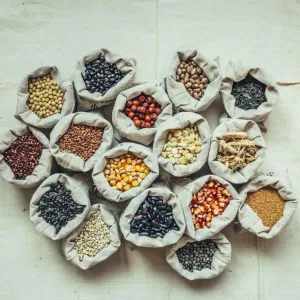3rd International Agrobiodiversity Congress to be held in China
Background In the context of the ongoing global food crisis, malnutrition and environmental degradation, there is an urgent need to build more diverse, resilient and sustainable food systems to nourish a growing population. However, the current global food system is overly reliant on a limited number of species and varieties, which are highly susceptible to pests and diseases, climate change

3rd International Agrobiodiversity Congress to be held in China
Background
In the context of the ongoing global food crisis, malnutrition and environmental degradation, there is an urgent need to build more diverse, resilient and sustainable food systems to nourish a growing population. However, the current global food system is overly reliant on a limited number of species and varieties, which are highly susceptible to pests and diseases, climate change and land degradation, which can also lead to further biodiversity loss.
Agricultural biodiversity – also known as agrobiodiversity – is a critical component of biodiversity overall, including species, genetic and ecosystem diversity of plants, animals and microorganisms for food and agriculture. Agrobiodiversity plays an indispensable role in ensuring food and nutrition security, responding to climate change, and improving human livelihoods, and makes a vital contribution to achieving global sustainable development goals. To this end, the international community places high importance on the conservation and sustainable use of agrobiodiversity. Under the initiative and promotion of the Alliance of Bioversity International and CIAT, the successful convening of the international agrobiodiversity congress first occurred in New Delhi, India, in 2016, and Rome, Italy, in 2021. These events significantly advanced academic exchange and sharing of experience in the field of agrobiodiversity. The resulting Delhi Declaration and Rome Manifesto on agricultural biodiversity were issued proposing feasible solutions and action guidelines to address related challenges.
The Third International Agrobiodiversity Congress is set to take place in Kunming, Yunnan, China in April 2025. China is a major agricultural country and one of the eight centers of crop diversity in the world. It has a long history of domesticating, cultivating, and preserving a vast array of agrobiodiversity. It also boasts extensive experience and numerous successful case studies in the conservation and utilization of agrobiodiversity. The congress serves as a concrete step towards implementing the Kunming Declaration on Biodiversity and the Kunming-Montreal Global Biodiversity Framework. At the same time, it will: provide a platform for exchange and cooperation among policymakers, scientists, producers, entrepreneurs and farmers related to the conservation and sustainable use of agrobiodiversity around the world; identify solutions to the climate and food crisis through the application of agrobiodiversity; foster shared commitments and collaborative actions; and reinforce the critical role that agrobiodiversity plays in securing global food security and improving human quality of life.

